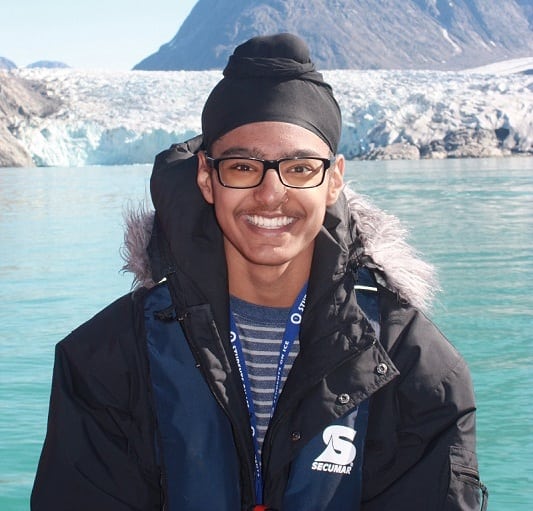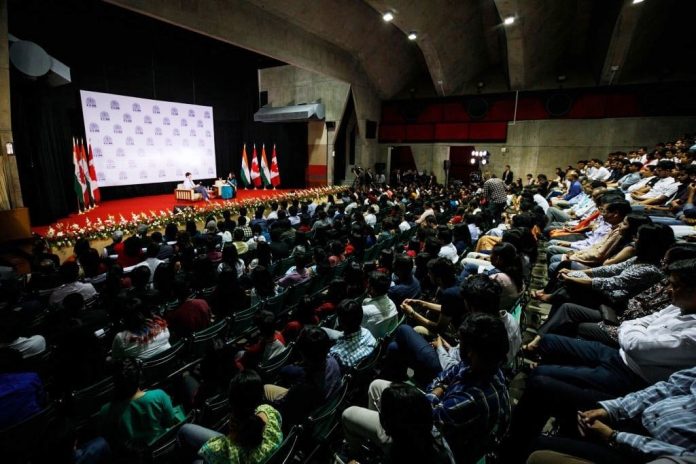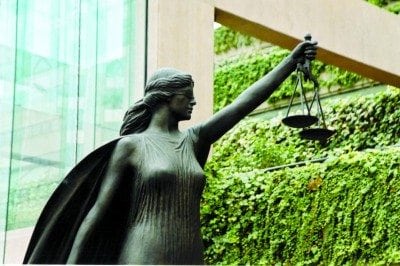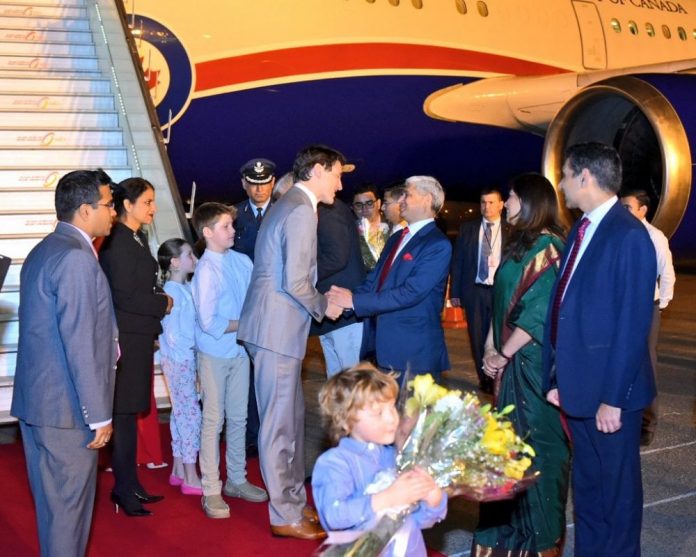Mumbai (PTI): The wife of visiting Canadian Prime Minister Justin Trudeau on Tuesday called for an end to gender disparity, saying the world has suffered a lot due to inequality between men and women.
All sections of the society should “stand up together” to eliminate gender disparity from the world, Sophie Gregoire Trudeau said at Sophia College for Women in South Mumbai.
“Misconceptions have led to many sufferings. It is a misogynist belief that girls are lesser than boys.
“Being able to acknowledge the true value of women is not a sign of weakness, but strength. A man has full potential to become strong, courageous and fearless but (he) also has the same potential to become tender and compassionate,” she said.
The fight for eliminating inequality does not mean pitting one gender against the other, Gregoire Trudeau said, adding “rather men are our allies.”
The 42-year-old former television host and women’s rights activist is accompanying her husband on his eight-day visit to India.
Appealing to women to stand up and speak against discrimination they face, she said, “We must open up, we must let the truth rise. Because by sharing the stories of suffering, we can move as a hero and this is what is happening and this is the awakening we are talking about. Moreover, as women we must unite and help each other and it works.”
Gregoire Trudeau, a mother of three, said education is the key to ending gender inequality.
“You are engaged in the process and you must continue… education is the key in this process,” she said, adding the fight against gender inequality has achieved initial success but a lot remains to be done.
“We say truth is rising on this planet, but there are lots of paradoxes on the earth. Still truth is rising, voices are rising and awareness is rising. Most importantly, we, as women, are rising. The more we unite, the more we will rise,” Gregoire Trudeau said.
During her 17-minute-long speech, she praised the diversity in India, saying, “India is a wonderful and vibrant country, besides being a beacon of diversity and innovation. And you all can continue to serve as an example to the world of how a nation can be so diverse but also so compassionate.”
To a query by a student on how Canada is addressing the issue of gender inequality, she said her government is committed to bring equality in all sectors.
“The Government of Canada is committed to upholding gender equality in all sectors. There are an equal number of males and females in the Cabinet and girls were doing a good job in education and academics,” she said.























